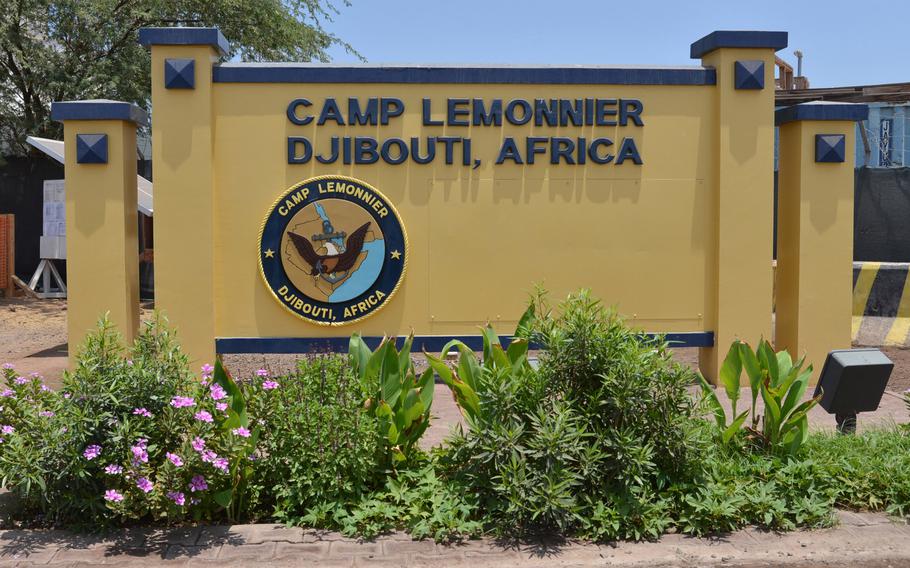
U.S Africa Command and Navy officials at Camp Lemonnier in Djibouti said corrective actions are being taken to resolve issues raised by the Defense Departments Inspector General office concerning troops being exposed to toxic air at the African base. (Stars and Stripes)
U.S. Navy officials in charge of the military’s main operating base in Africa put troops at higher risk of exposure to toxic air by not heeding environmental safety requirements, a Defense Department probe found.
A whistleblower complaint alleging that command staff at Camp Lemonnier in Djibouti ignored ongoing hazardous air quality conditions prompted the investigation by the inspector general.
U.S. Naval Forces Europe and Africa did not identify actions to lessen the impact of poor air quality on deployed personnel, the IG said in a report released Nov. 20. The IG also said Navy officials overseeing the camp hadn’t sufficiently advised incoming service members and civilians of Djibouti’s poor air quality and the medical risks associated with it.
On Friday, U.S. Africa Command and Navy officials said corrective actions are being taken.
“AFRICOM is working with (U.S. Naval Forces Europe and Africa) to ensure service members have access to the most current information about potential exposures and that proper documentation of air quality measurements in the occupational environment will follow service members throughout their career,” AFRICOM said in a statement.

Service members take the command fitness leader certification course on Camp Lemonnier, Djibouti, in November 2024. Base officials are encouraging personnel to conduct non-essential activities indoors when poor air quality conditions are observed. (Facebook/Camp Lemonnier)
The IG said the Navy’s lack of a plan meant that AFRICOM couldn’t determine whether air quality at Camp Lemonnier, which is in the heart of an city with a history of burning trash, has worsened over the past six years.
“Such exposure can adversely impact the health of those on the ground and decrease readiness, causing the DoD to incur costs for veteran care that could be avoided with proper notification and mitigation procedures,” Inspector General Robert Storch said in a statement.
Toxic air exposure has been a long-standing health concern for U.S. troops deployed around the world. The wars in Iraq and Afghanistan, where many service members were exposed to toxins incinerated in burn pits, put a spotlight on the various health issues veterans have faced.
In 2022, Congress passed a law that expanded health care and disability benefits for millions of veterans exposed to such toxins during their careers.
In the city of Djibouti, the capital of the country of the same name, the problem relates mainly to residential trash burning near Camp Lemonnier, where about 4,000 U.S. personnel are based.
Between June and July, the IG did its own air assessment in the city and found that air quality was consistently well above the level that the World Health Organization identifies as safe for human health.
The base is encouraging personnel to go indoors for activities that aren’t essential to the mission when air quality is bad, Navy officials said.
AFRICOM said it will ensure that a wide range of reforms are implemented by spring of next year. The measures include staff requirements and timelines for annual environmental reviews at Camp Lemonnier and other deployed locations, AFRICOM said.